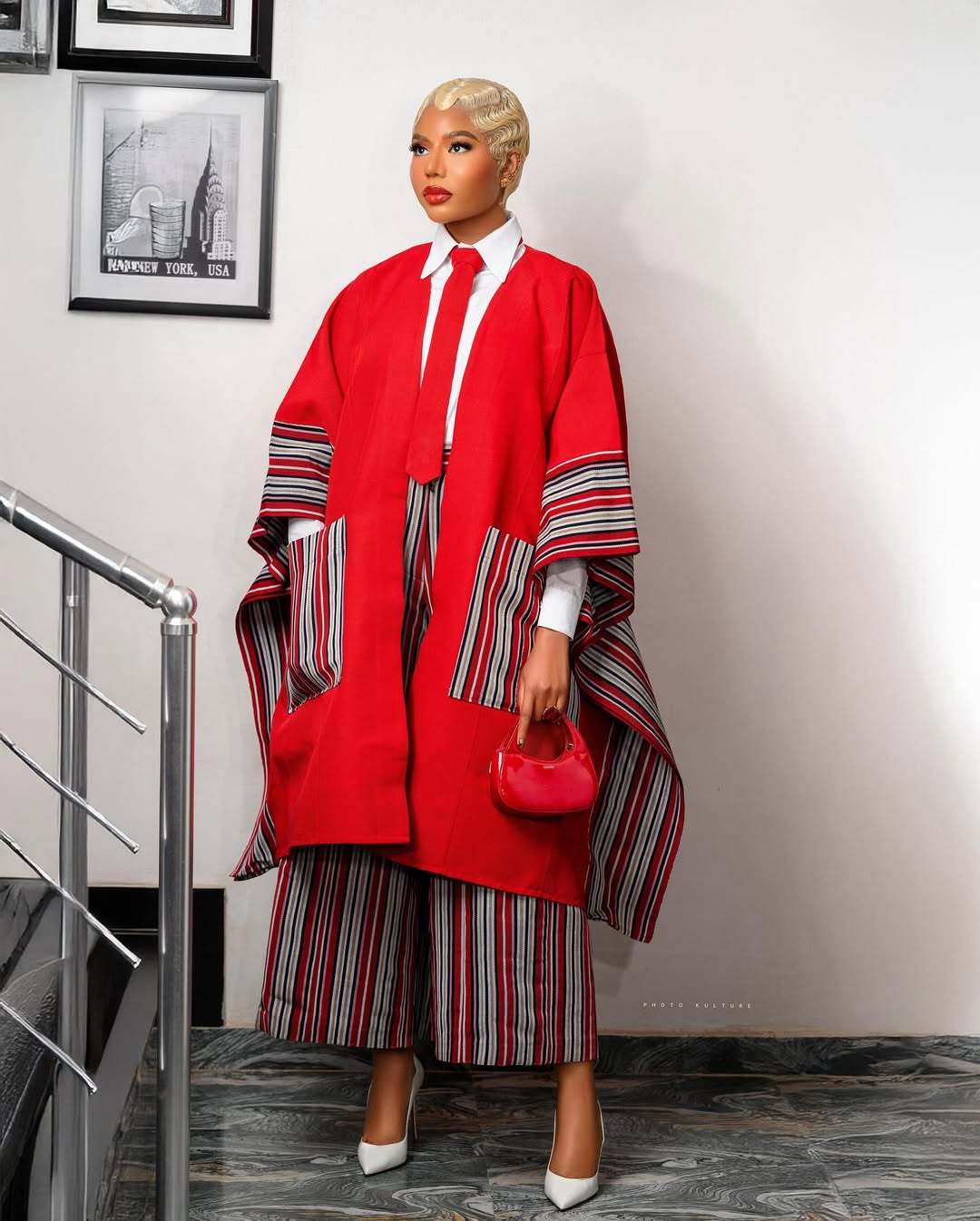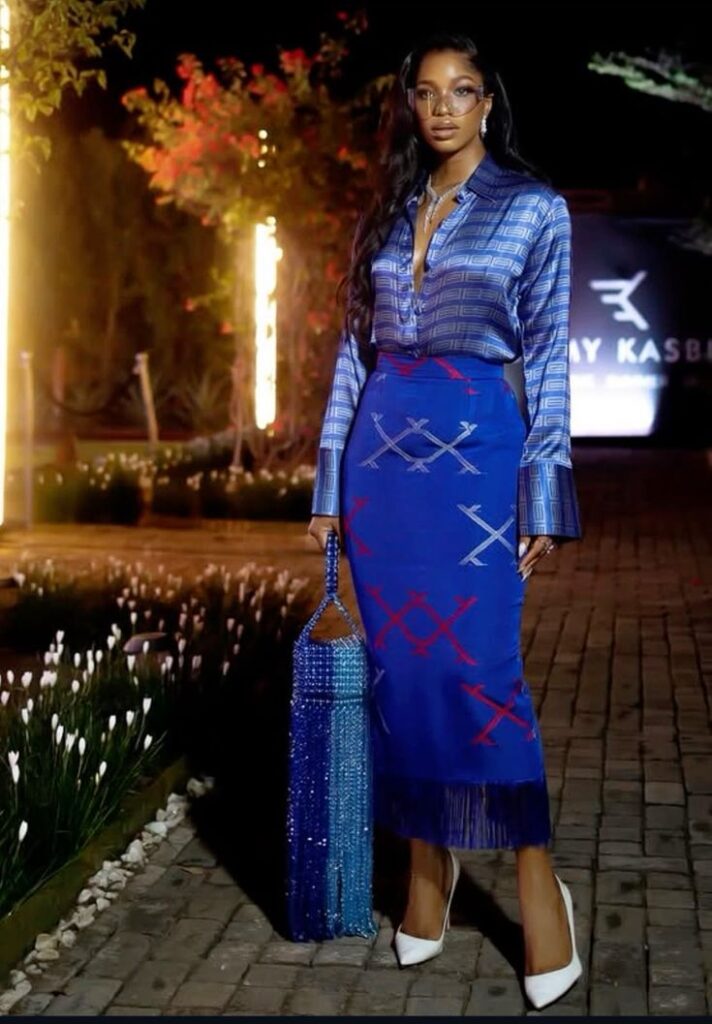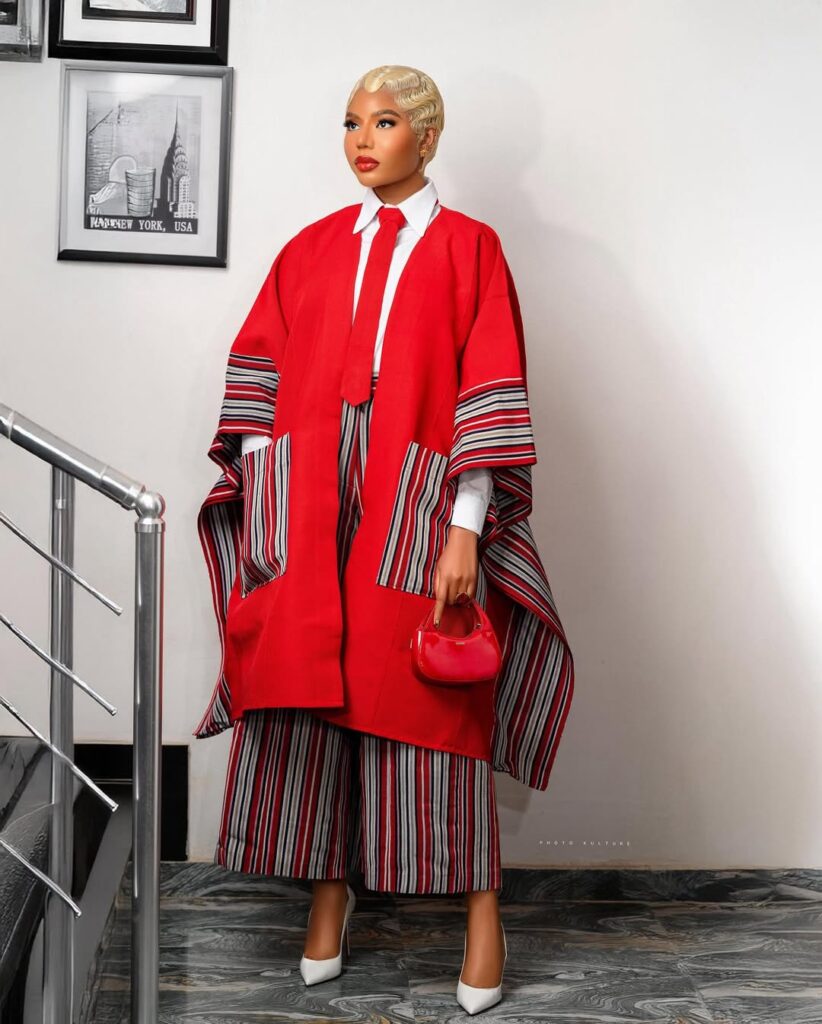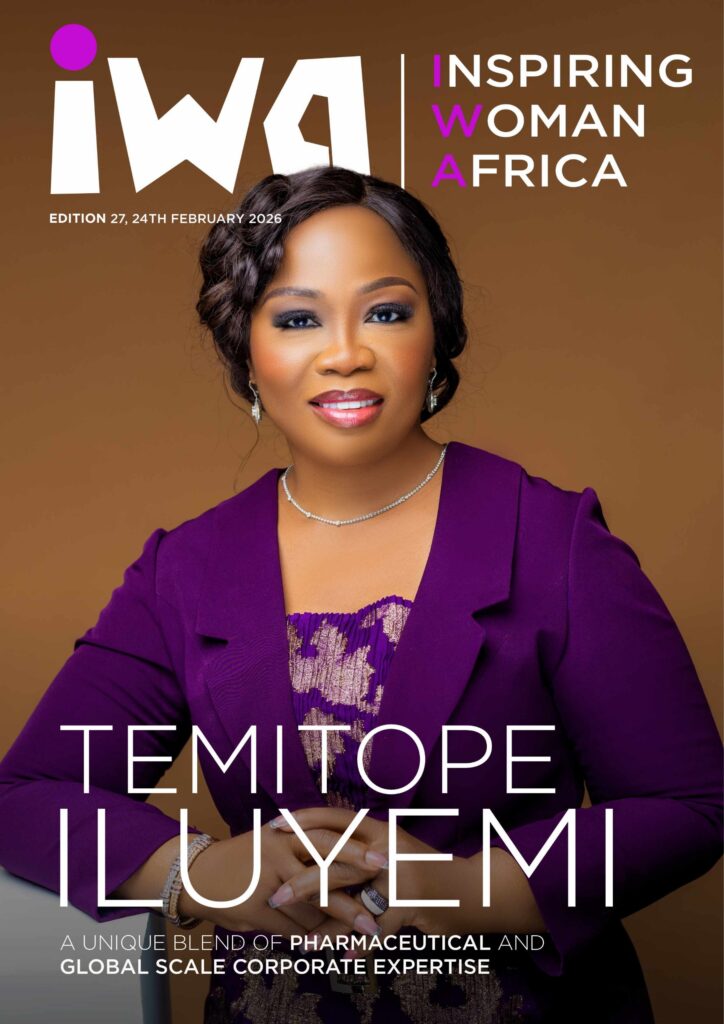
Fashion is more than fabric; it is identity, heritage, and history woven into thread. In Nigeria, every community has a textile tradition that tells its own story, carrying the legacy of ancestors into the present. Among the most revered of these are Aso Oke, Akwete, and Akwocha—three fabrics that embody not just style, but evolution.
Fashion is never just about clothing—it is about memory, culture, and identity. In Nigeria, three iconic fabrics—Aso Oke, Akwete, and Akwocha—have evolved from sacred tradition into modern luxury. Today, they are not only worn; they are celebrated as symbols of resilience, prestige, and artistic genius.
Aso Oke: Regal Elegance of the Yoruba
“To wear Aso Oke is to carry royalty on your shoulders.”
Richly woven with cotton, silk, and sometimes metallic threads, Aso Oke has always been the Yoruba’s fabric of prestige. Traditionally reserved for weddings, coronations, and festivals, it was once the hallmark of kings, queens, and nobility. Its bold stripes and luminous textures tell stories of pride and power.
Modern twist: Today, Aso Oke is no longer confined to ceremonies. Designers reimagine it as sharp suits, couture gowns, and even street wear. It has crossed borders, becoming both heritage and high fashion.
Did You Know? Some elaborate Aso Oke designs can take weeks—sometimes months—to weave by hand.
Akwete: The Artistic Soul of the East
“Every Akwete motif is a language. Every weave, a history lesson.”
From the looms of Igbo women comes Akwete, vibrant, geometric, and deeply symbolic. Its patterns once adorned warriors, chiefs, and titled women. Each weave carries a narrative—whether of fertility, courage, or community strength.
Modern twist: Today, Akwete is finding new life on global runways. Its bold colors and intricate motifs are being cut into contemporary suits, edgy dresses, and statement accessories. It is no longer just a cultural fabric—it is a global conversation piece.
Sidebar Fact: Traditionally, Akwete weaving was a woman’s craft, passed down through generations. Mothers taught daughters the loom, preserving stories in every design.
Akwocha: The Pristine Canvas of Anioma
“Akwocha is not just white cloth—it is purity woven into fabric.”
From the Anioma people of Delta State comes Akwocha, the fabric of peace, dignity, and communal pride. Woven in soft white, often with subtle embroidery, it embodies simplicity and grace.
Modern twist: Minimalist designers now embrace Akwocha as the perfect canvas—transforming it into flowing gowns, structured jackets, and resort-inspired fashion. Its quiet elegance appeals to a world increasingly drawn to timeless simplicity.
Did You Know? “Akwocha” literally means white cloth in Anioma dialect. It symbolises a clean spirit, dignity, and unity.
Threads of Tomorrow
Together, Aso Oke, Akwete, and Akwocha tell the story of Nigeria’s fashion evolution. They are not relics locked in the past; they are fabrics of the future—woven with tradition, yet tailored for the global stage.
“Heritage is the new luxury. And in Nigeria, our fabrics are our crown jewels.”






Yolanda Okereke is a visionary fashion entrepreneur and respected industry leader, known for her exceptional work as a Costume Designer and Creative Producer in Film and Television. With over a decade of experience, she has consistently shaped the visual identity of some of Nollywood’s most iconic productions, earning a reputation for her artistic depth, organisational precision, and bold storytelling through costume.
She is the Founder and Head of The Rani Company, a leading costume design and styling firm, and The Wardrobe Shack, a costume rental house serving high-profile film and television projects across Nigeria.
Latest Posts
-
Feb 24, 2026 Busie Matsiko
-
Feb 24, 2026 Seven Money Moves to Make Today






